- Home
- Blake Banner
Two Bare Arms Page 17
Two Bare Arms Read online
Page 17
“Parents, James and Kathleen O’Conor, apparently still living.”
I sat back and scratched my chin.
“So, we have a case of an Irish human rights attorney from Brooklyn found, dressed as a vagrant, murdered execution style, in the Bronx, in a dumpster owned by the Irish Mob.”
“Really?”
“Hagan construction.” I told her what I’d found.
“Where do you want to start?”
I stared at Dehan’s face. It was a nice thing to stare at and she stared back at me. It was a thing we did. Other people found it unsettling but it helped us to think.
“My gut,” I said, “tells me whatever Sean O’Connor was doing in Brooklyn did not get him killed in the Bronx. I want to talk to his partners at the Drop In Center, then maybe we have a chat with his mom and dad.”
“My thoughts exactly, Sensei. You want to forage some food while I find out where Foster and Singh are?”
I left her to it and made for the deli on the corner.
TWO
I got two beef on rye and Dehan met me outside the station, sitting on the hood of my Jaguar. Not many women can sit on the hood of a 1964 Mark II and look good. Mostly you want to move them off so you can get a good look at the car, but Dehan looked like she belonged there. I handed her her sandwich and she began to unwrap it.
“His office is in Manhattan, but he’s at home today. Harbor Road, Oyster Bay, Long Island, I called and they are expecting us.”
I opened the car. “I guess we can assume he isn’t doing pro bono work anymore.”
“Seems a safe bet.”
We took the Bronx Whitestone Bridge and then, at Cunningham Park, we turned east onto the Long Island Expressway and followed that as far as Jericho. The Jericho Oyster Bay road was long and straight and leafy in the dappled sunshine, and there were cute houses hiding among the trees, with chimney pots poking out and leaded bow windows. It was like driving into a chocolate box.
We arrived at Oyster Bay and crawled through a sleepy town where it seemed almost everybody lived in a mansion, and the small houses were the ones with only five bedrooms and no tennis court. It was a tasteful place but none had the gaudy ostentatiousness of Manhattan. You had the impression that poverty was not allowed here, not because it was immoral, but because it was in bad taste, like stretched limos and tie-pins.
As we turned into Harbor Road, Dehan was looking around her with a kind of rueful air. “Jeez, I bet even the muggers here wear Ralph Lauren and say please and thank you.”
“We have become cynics, Dehan. We devote our lives to fighting crime, but have you ever thought what it would be like if we won?”
She didn’t answer for a moment, staring out at the rows of sweeping lawns, white picket fences and rambling houses. “It never crossed my mind,” she said at last, “that we might win.”
He had an ample driveway, so I pulled in and parked beside his Porsche. As I climbed out and Dehan walked towards the front door, I glanced at the two cars. I thought mine fit better than his. It was less gaudy. Maybe I needed a house to go with my car.
David Foster had a polite Latin-American housemaid who opened the door to us. We told her who we were and she led us out to the pool. It was not warm enough to swim yet, but it was pleasant enough for tasteful pre-prandial drinks on the patio. David was sitting at a white, wrought iron table reading some documents, with what looked like a bone dry Martini by his elbow.
He looked up as we approached, smiled agreeably, and stood to greet us. We showed him our badges.
“I am Detective John Stone, this is my partner, Detective Carmen Dehan.”
We shook and he gestured toward the table. “Please, take a seat. Can I offer you a drink? You are on duty, so perhaps some homemade lemonade?” He didn’t wait for an answer, but turned and said, “Rosalía, dos vasos de limonada, por favor.”
She gave a cute little bow and walked back toward the house. We all sat. He was handsome in an Anglo-Saxon sort of way, with sandy hair and blue eyes. He smiled at Dehan and said, “When you called, you mentioned that you wanted to discuss Sean O’Conor with me. I haven’t seen Sean for about twelve years. I am not sure what I can tell you about him, but may I ask what your interest is?”
Dehan glanced at me.
I said, “You worked together at the Drop In Center, on Sheridan Avenue in the Bronx, is that right?”
He smiled. “Yes, there were three of us. They were good times. There was me, Sean and Arnav… Arnav Singh!” He said it as though remembering their names was an achievement of some sort.
Dehan gestured around her. “It seems a long way from this.”
“Oh, it is! But my uncle insisted on it. If I was going into his firm, he wanted me to experience life, and the law, at the sharp end. I’m glad I did it, and I’m glad it’s over. But your interest is in Sean, not me, I gather. And I am still not sure why.”
I asked him, “Do you recall what cases Sean was involved in back then?”
He frowned. “Only vaguely, and I am not sure I would be allowed to discuss them with you. If he discussed them with me in a legal capacity…”
“Privilege would extend to you, I understand that. The thing is, Mr. Foster, Sean was murdered, and we believe it may have had something to do with a case he was working on at that time.”
His frown had become incredulous. “Murdered? Sean? But that’s…grotesque! Poor Sean. What on Earth happened?”
Dehan said, “That is what we are trying to find out. I’m not a lawyer, Mr. Foster, but if he was murdered, surely you could be a little flexible.”
He nodded. “Of course.” He stared hard at the tabletop for a while. “Sean was a bit stereotypic, you know, very much the Irish firebrand. Always ready—a bit too ready if you ask me—to take on the big boys and strike a blow for the underdog.” He looked at me and frowned. “That was what always surprised me. One day he just didn’t turn up at the Center. Arnav and I stuck it out to the end of the month, but the driving force behind that place had always been Sean. So we just closed up shop and went our separate ways.”
“Can you remember any particular cases he was working on just before he disappeared?”
He stared at me. “Is that why he disappeared? Because he was murdered? Twelve years ago?”
I nodded.
“Jesus…!” He sighed. “Yeah, his big thing at the time was a squatters’ rights case. You should talk to Singh. He and Sean were thick as thieves. He was going up against a big construction company that wanted to evict, or was in the process of evicting, a bunch of people who were squatting in a building. The company wanted to knock down the site and develop it. Of course there were millions—tens of millions—of dollars at stake, but Sean’s point was, quite correctly, that the rights of the people who were living there were being trampled on.”
Dehan asked, “Can you remember the name of the construction company?”
He shook his head. “I can’t, but I do remember him making a big thing at the time of the fact that they were Irish, like him. The whole Irish, Catholic thing was a big deal for him.”
Rosalía came out with two glasses and a pitcher of iced lemonade. She poured us a glass each, left the pitcher, and went back inside.
I sipped and Dehan said, “You mentioned he was close to Arnav. You guys stay in touch?”
“No, he moved down to Washington. His thing was playing politics, not my scene. I get more than enough of that at work. But he was smart and ambitious, so he shouldn’t prove hard to find. Then there was his church. Not Arnav, Sean.”
I frowned at him. “His church?”
“Oh, yes! When I say to you that everything, and I mean everything, revolved around God, Jesus, and the Roman Catholic Church, I am not exaggerating even a little. I don’t know when he found time for his actual, real job, but he used to spend every spare moment he had at the church, doing everything from distributing clothes to running a soup kitchen, reading to little old ladies… you name it.”
“Some guy.” It was Dehan, she was looking skeptical.
“No, don’t smirk, detective. He was the real deal, an honest to goodness good guy. I try, let’s face it, most of us try and do the best we can. We all care a bit, right? Not him. He was the genuine article. He really cared, completely. If you talk to the priest there, I am sure he will remember him.”
I asked him, “What church?”
“St. Mary’s, it was… let me see if I can remember… Lafayette. It was a big church. Old. You know, the ones that actually look like churches. You won’t have any trouble finding it. The padre was Irish too. One of those ‘O’ names.”
Dehan said, “O’Neil?”
He snapped his fingers and smiled. “That’s the fellow. Father O’Neil, Padraig O’Neil!”
She nodded. “I know it.”
Foster had got into his stride. “It’s coming back to me now. He had a girl, too. You should talk to her, although oddly enough she wasn’t Irish. I think she was Venezuelan or Mexican maybe. Anyway, for sure she was Latin American. He was pretty sweet on her. I definitely remember that.”
I asked, “Can you remember her name?”
He shook his head. “As I say, he and I weren’t real good pals. I think I was too much of a WASP for his taste, Boston Brahmins, English ancestors... not his cup of tea. He was a nice guy, though.”
We chatted a bit longer, finished our lemonade, and left.
Dehan closed her door and I sat drumming my fingers on the steering wheel. Dehan glanced at me. “Don’t tell me, it’s too easy.”
I grimaced, turned the key in the ignition, and took off.
THREE
James and Kathleen O’Conor had a house in Corona, just by the Flushing Meadows Park. It was a nice, detached place on 46th Avenue, which would probably have fit comfortably into David Foster’s kitchen. As I pulled up in front of their gate, I paused a moment to think about relative values. I get deep like that sometimes. Dehan said, “You think the pool and the tennis courts are in back?”
I climbed out and looked at her across the roof of the car. The first green leaves of spring were coming out on the plane tree behind her. “Is that the whiff of sour grapes I detect in your voice, Dehan?”
She shook her head. “No, I’m just wondering, what didn’t these guys do, that David Foster did do…?”
“If your point is that life isn’t fair, you’re a little late. We already knew that.”
She sighed. “I know.”
I pushed through the gate and rang on the bell.
The door opened and I looked down at a small woman of maybe five feet. She had a squint and short hair, jeans, a pink cardigan, and a mischievous smile.
“Can I help you?”
I showed her my badge. “Detectives Stone and Dehan, NYPD. Are you Kathleen O’Conor?”
“I am, what have I done now?” she said, and grinned.
I smiled back. “Nothing we know of, Mrs. O’Conor. We would just like a quick word with you and your husband, Jim. Is he in?”
“He’s watching the TV, for a change. Come in.” She walked ahead of us into the front room, speaking as she went. “Jim! Would you turn the feckin’ TV off for five minutes? We have visitors.”
We followed her in. There was a an immensely tall man, with a shock of snow white hair swept back from his face, folded into an armchair opposite the TV. He fumbled with the remote control, switched off the television, and levered himself to his feet. Once he had managed all that, he smiled. He must have been six foot six if he was an inch.
I told him who we were and they both told us to sit down. I watched Jim lever himself back into his chair and Kathleen sat on the sofa, next to Dehan, with her feet barely touching the floor.
I sighed. “We need to talk to you about your son, Sean.” I pulled the photograph Dehan had printed from my pocket and showed it to them. “Is this Sean O’Conor, your son?”
All the humor drained from their faces. Kathleen put her hand to her mouth and tears glistened in her eyes. Jim seemed to turn gray.
“Yeah. That’s our son. Did you find him?”
“I’m afraid I have very bad news. Sean was found murdered.”
Kathleen gave a scream. Her eyes went wide and she stared at me. Jim seemed to crumble. He sank back in his chair and put one massive hand over his eyes. Kathleen kept saying, “No! Oh, no! God no, please.”
Jim spoke without opening his eyes. “When did this happen? Where has he been all this time? What has he got himself mixed up in…?”
I took a deep breath, but it was Dehan who answered. “It happened twelve years ago, Mr. O’Conor, but we were only able to identify the body this morning.”
Kathleen’s hands dropped into her lap. “What?”
Jim opened his eyes. “Twelve feckin’ years?”
“Why were we not notified? Why was he not…”
“Twelve feckin’ years!” Jim said it again, looking around the room as though he might find an explanation on the walls somewhere.
“I know it is hard to understand.” Even as I said it, it sounded lame. “We were pretty surprised ourselves. But all his papers had been removed, and he had been dressed in the clothes of a vagrant. There was no possible clue to his identity.”
Kathleen’s face twisted and she started to sob. “Oh, God bless him, poor Sean!” Dehan put her arm around her.
Jim shook his head. His voice was a rasp. “Who would do a thing like that to my son?”
“That’s what we mean to find out.”
Dehan said, “We know this is really hard, but if you can help us, if you can answer a few questions for us…”
“We can come back later if…”
But they were both shaking their heads. Kathleen spoke into her handkerchief, twisting her nose. “I knew it. I knew he was dead. I said so, didn’t I, Jim?”
“Ah, sure, we both knew, Kath. It’s just, when you come face to face with it like that…”
“When you have it confirmed. And murdered… sweet mother of God, murdered…” She started sobbing again.
“Shall I make a cup of tea?” It was Dehan, stroking her back.
Kathleen gripped her hand and looked up into her face. “Would you, love?”
Dehan went out to the kitchen. I heard the cupboard doors bang and the tap hiss.
I said, “Did he ever talk much about his work with you?”
“All the feckin’ time!” It was Kathleen, talking into her handkerchief again. She blew her nose. “It’s all he ever feckin’ talked about. His work, and the f… and the church.”
Jim said, “He was very devoted to his work, and to the church, detective.”
“Do you recall what he was working on just before he disappeared?”
Jim nodded. “Oh yes. How could I not? We both do, don’t we, Kath?”
“Some feckin’ squatters. Lazy feckin’ no-good layabouts, want every feckin’ thing handed them on a feckin’ plate…”
She dissolved into tears. Jim watched her a moment, then turned to me. “They had taken over a building on Tiffany Street, in the Bronx. Big, five-story apartment block, so it was. Semi-derelict, no water, no electric, but there must have been some handy lads there ’cause didn’t they get it all working? Illegal, like, but still...”
“And charge it to the feckin’ honest taxpayer!”
“Not at all, Kath! Taxpayers had nothing to do with it.”
“So you say!”
I coughed. “So, what did your son have to do with these squatters?”
“Didn’t the landlord want to sell the site, so they could tear it down and make offices there? See, it was worth a hell of a lot more as offices than as apartments. So, one of the parishioners at St. Mary’s, some down and out, one of them squatters, tells Sean they’re being evicted, and doesn’t he only go and start a case against the company that’s selling the site. He claims agents for the company had taken rent from the residents, and therefore owed them compensation for evicting them.”
&nb
sp; “Can you remember the name of the company?”
He gave a dry laugh. “Well, that was another thing. It turns out, according to Sean, the company selling the property and the company buying the property, are both owned by the same parent company, and they both have city officials sitting on the board of directors. It stank to high hell. And he was goin’ after them, goin’ for the jugular, so he was.”
“Can you remember the name?”
“Remember it? I’ll never feckin’ forget it. Hagan Construction. That was the parent company, belonged to Conor Hagan and you being a policeman, you’ll be familiar with the name. Any Irishman who has lived in the Bronx is familiar with that name. Head of the Hagan clan, a big shot in the Irish Mob, a very dangerous man to cross.” His bottom lip curled and he began to sob. “I never wished so bad that I’d had a coward for a son. May God forgive me, wasn’t it his courage and his faith that cost him his life?”
Dehan came in with a tray, four cups, and a pot of tea. She set it down on the coffee table and started to pour. While she did, I sat back and stared out their bow window at the tree across the road.
Dehan handed me a cup and sat down next to Kathleen. I said, “So Sean was taking a case on behalf of the residents of this building on Tiffany Street, against Conor Hagan.”
“Residents?” It was Kathleen. “Squatters and parasites, more like!”
A flash of irritation crossed Jim’s face. “He was a good Christian, Kath. He lived by his faith…”
“And feckin’ died for it!”
Dehan cut in before it escalated. “I believe he was active at a church in the Bronx.”
Jim sipped. “St. Mary’s. He was born in the Bronx, and we moved out here when he was a young lad, to get away from the crime. But we stayed in contact with the priest, a good man so he was, always ready to help, if he could.”

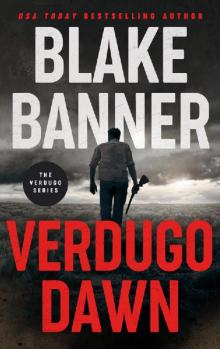 Verdugo Dawn
Verdugo Dawn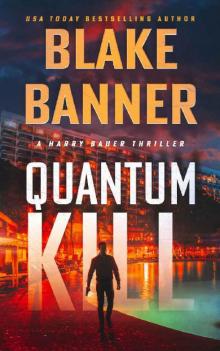 Quantum Kill (Cobra Book 4)
Quantum Kill (Cobra Book 4)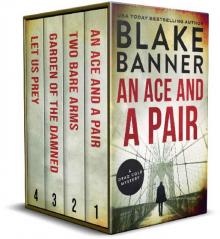 Dead Cold Mysteries Box Set #1: Books 1-4 (A Dead Cold Box Set)
Dead Cold Mysteries Box Set #1: Books 1-4 (A Dead Cold Box Set)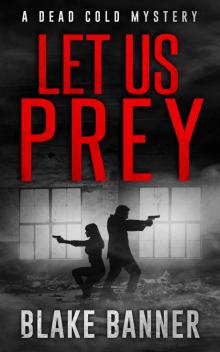 Let Us Prey
Let Us Prey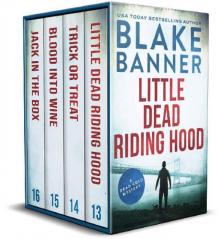 Dead Cold Mysteries Box Set #4: Books 13-16 (A Dead Cold Box Set)
Dead Cold Mysteries Box Set #4: Books 13-16 (A Dead Cold Box Set)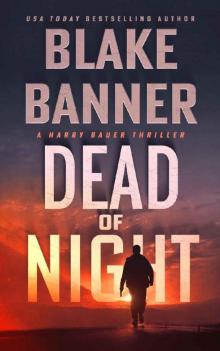 Dead of Night
Dead of Night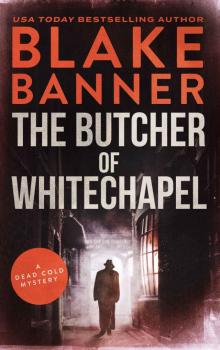 The Butcher of Whitechapel: Dead Cold Mystery 12
The Butcher of Whitechapel: Dead Cold Mystery 12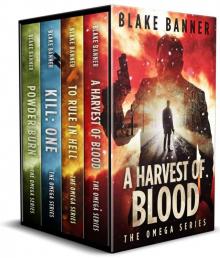 Omega Series Box Set 2
Omega Series Box Set 2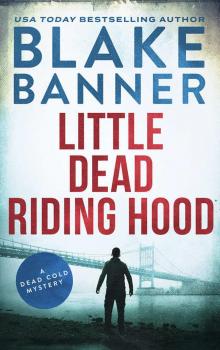 Little Dead Riding Hood: Dead Cold Mystery 13
Little Dead Riding Hood: Dead Cold Mystery 13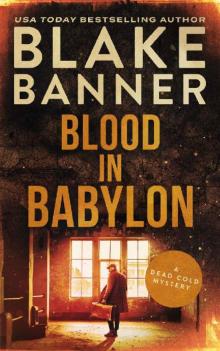 Blood in Babylon
Blood in Babylon Powder Burn
Powder Burn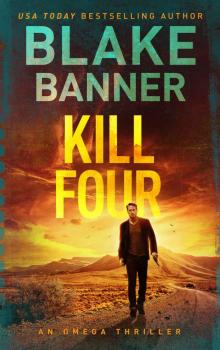 Kill Four
Kill Four Omega Series Box Set 3
Omega Series Box Set 3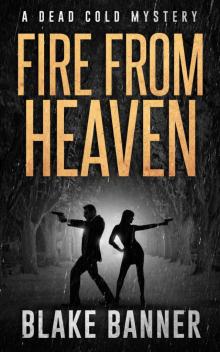 Fire From Heaven: Dead Cold Mystery 9
Fire From Heaven: Dead Cold Mystery 9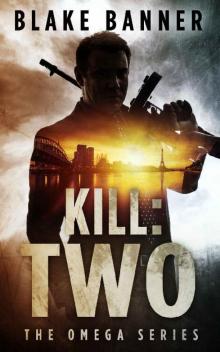 Kill - Two
Kill - Two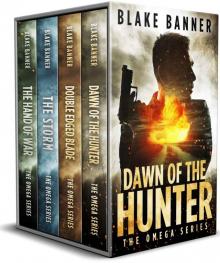 Omega Series Box Set 1
Omega Series Box Set 1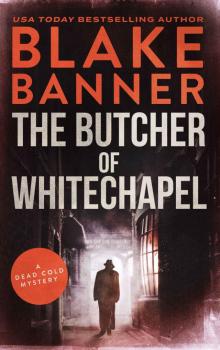 The Butcher of Whitechapel
The Butcher of Whitechapel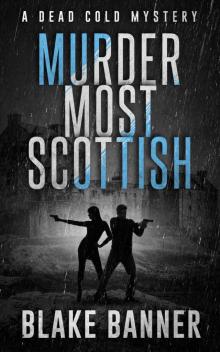 Murder Most Scottish
Murder Most Scottish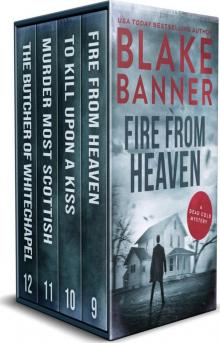 Dead Cold Mystery Box Set 3
Dead Cold Mystery Box Set 3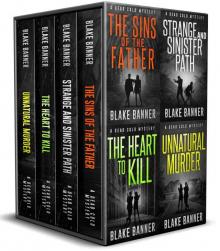 Dead Cold Mysteries Books 5-8
Dead Cold Mysteries Books 5-8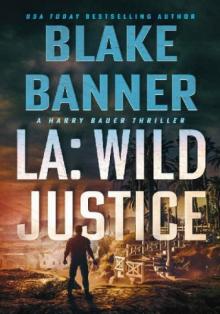 LA
LA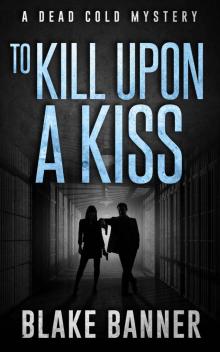 To Kill Upon A Kiss: Dead Cold Mystery 10
To Kill Upon A Kiss: Dead Cold Mystery 10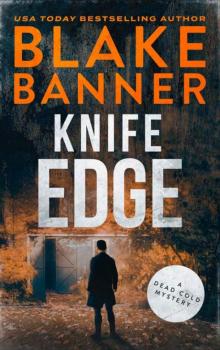 Knife Edge (A Dead Cold Mystery Book 27)
Knife Edge (A Dead Cold Mystery Book 27)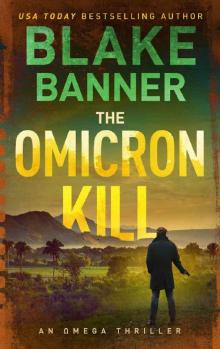 The Omicron Kill - An Omega Thriller (Omega Series Book 11)
The Omicron Kill - An Omega Thriller (Omega Series Book 11)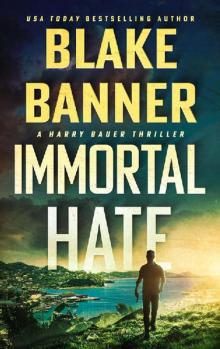 Immortal Hate (Harry Bauer Book 5)
Immortal Hate (Harry Bauer Book 5)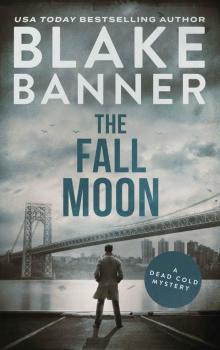 The Fall Moon
The Fall Moon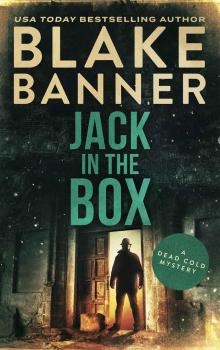 Jack in the Box
Jack in the Box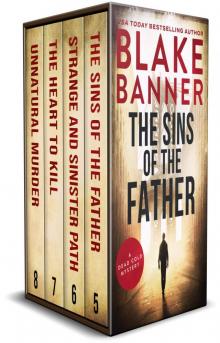 Dead Cold Mystery Box Set 2
Dead Cold Mystery Box Set 2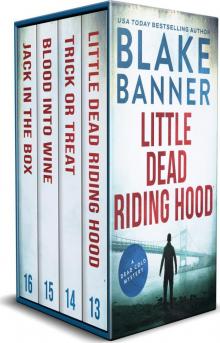 Dead Cold Mystery Box Set 4
Dead Cold Mystery Box Set 4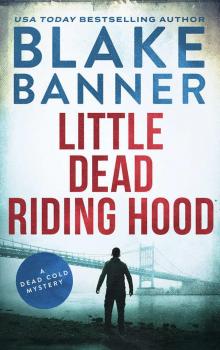 Little Dead Riding Hood
Little Dead Riding Hood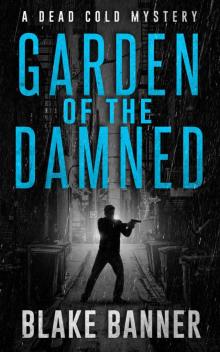 Gardened of the Damned
Gardened of the Damned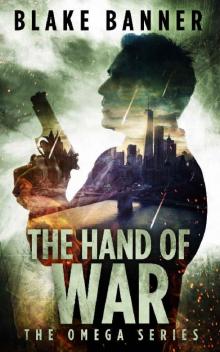 The Hand of War
The Hand of War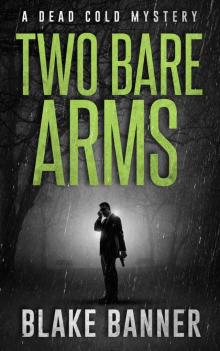 Two Bare Arms
Two Bare Arms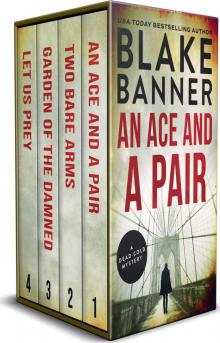 Dead Cold Mystery Box Set 1
Dead Cold Mystery Box Set 1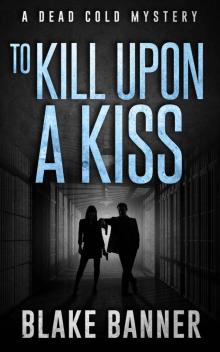 To Kill Upon A Kiss
To Kill Upon A Kiss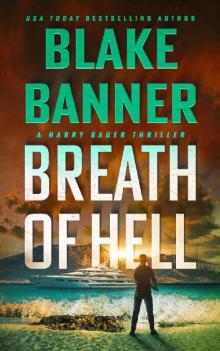 Breath of Hell (Harry Bauer Book 8)
Breath of Hell (Harry Bauer Book 8)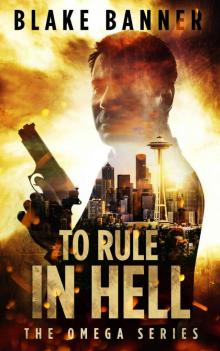 To Rule in Hell
To Rule in Hell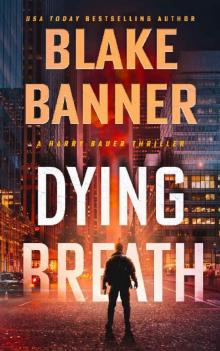 Dying Breath (Cobra Book 2)
Dying Breath (Cobra Book 2)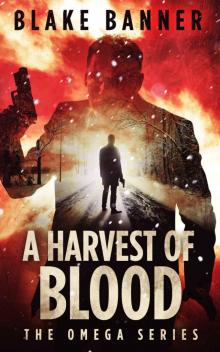 A Harvest of Blood - An Action Thriller Novel (Omega Series Book 5)
A Harvest of Blood - An Action Thriller Novel (Omega Series Book 5)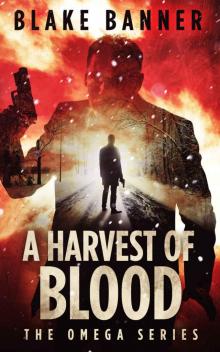 A Harvest of Blood - An Action Thriller Novel
A Harvest of Blood - An Action Thriller Novel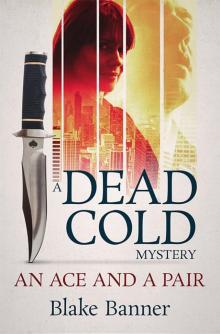 Ace and A Pair: A Dead Cold Mystery (Dead Cold Mysteries Book 1)
Ace and A Pair: A Dead Cold Mystery (Dead Cold Mysteries Book 1) Omega Series Box Set 3: Books 8-10
Omega Series Box Set 3: Books 8-10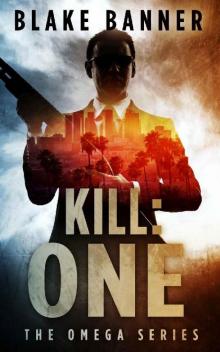 Kill One_An Action Thriller Novel
Kill One_An Action Thriller Novel The Storm
The Storm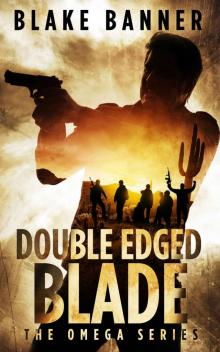 Double Edged Blade
Double Edged Blade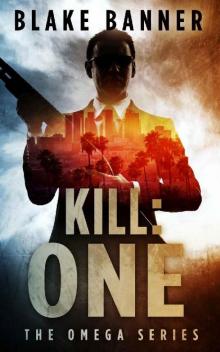 Kill: One - An Action Thriller Novel (Omega Series Book 7)
Kill: One - An Action Thriller Novel (Omega Series Book 7)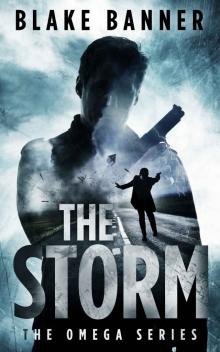 The Storm - An Action Thriller Novel (Omega Series Book 3)
The Storm - An Action Thriller Novel (Omega Series Book 3)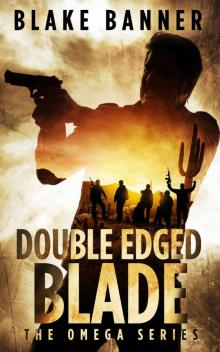 Double Edged Blade - An Action Thriller Novel (Omega Series Book 2)
Double Edged Blade - An Action Thriller Novel (Omega Series Book 2)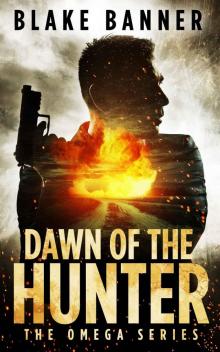 Dawn of the Hunter
Dawn of the Hunter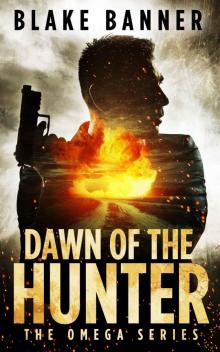 Dawn of the Hunter - An Action Thriller Novel (Omega Series Book 1)
Dawn of the Hunter - An Action Thriller Novel (Omega Series Book 1)